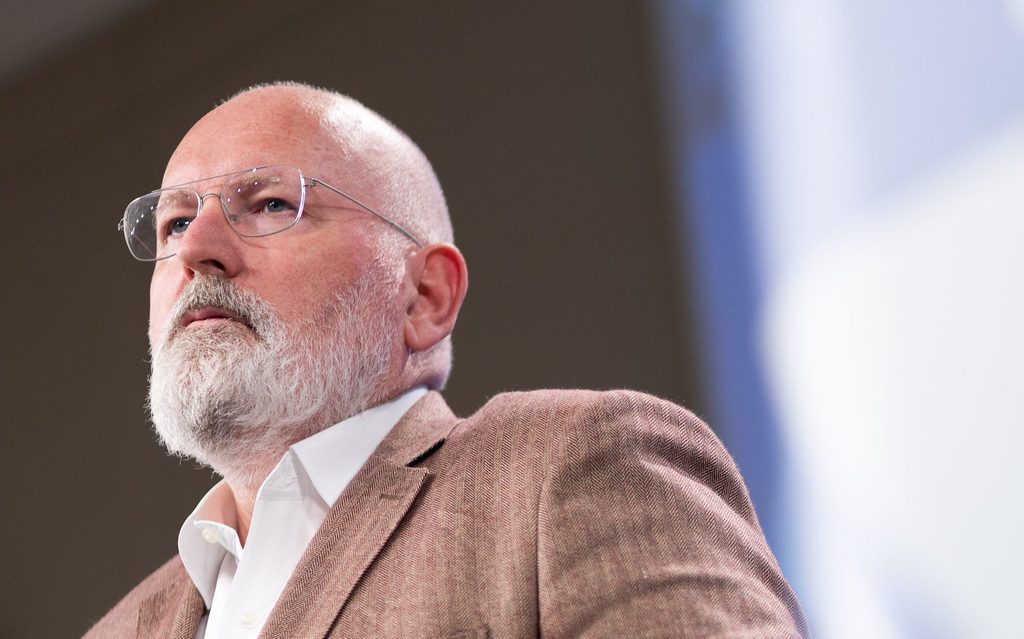BRUSSELS BEHIND THE SCENES
Weekly analysis with Sam Morgan
Climate change’s most destructive impacts continue to be felt around Europe and the summer is only just starting. What does this mean for the immediate future of the EU’s big lawmaking machine? Behind the Scenes takes a look.
Rivers of icy hailstones in Italy, deadly storms in Croatia, scorching temperatures in Spain and wildfires in Greece have made the start of Europe’s summer season a hectic one to say the least.
Any scientist worth their salt will tell you that all of them are made more likely and more dangerous by the effects of human-caused climate change. So is that simple fact starting to bleed into true public discourse?
And will it have any impact whatsoever on EU elections in 2024, which will dictate the immediate future of how the Union goes about its business?
BRUSSELS BEHIND THE SCENES includes weekly analysis not found anywhere else, as Sam Morgan helps you make sense of what is happening in Brussels. If you want to receive Brussels Behind the Scenes straight to your inbox every week, subscribe to the newsletter here.
Major surveys and polls show that climate and the environment rank at the top of concerns among the general public. Even after a period of severe economic uncertainty, green issues are still ostensibly the factors driving voting patterns.
But check most national election results and that survey data does not always transfer over. Other concerns and habits turn up to ruin the green party, relegating climate matters down the list of priorities.
Less than one year out from the EU elections in June 2024, as tangible proof of legislative failings burns, flows, falls and rages around us, will any of that have an effect?
One European Parliament insider pessimistically told Behind the Scenes this week that climate impacts in the real world “are not going to move the needle”, adding that the general public are like the frog that has been boiled too long. “No one notices it much anymore.”
Another source cited Spain’s inconclusive election result, which saw the Sumar alliance – a movement that includes green parties – lose votes.
The far-right Vox party which widely disbelieves the concept of human-triggered climate change, also haemorrhaged votes but still enjoys a good chunk of support in a country that is very exposed to the worst extreme weather and climate dangers.
‘Voters are too jaded to care’ might hold some water for some demographics but, as with any election, it is difficult to gauge what impact that significant portion of young voters, many of whom will be voting for the first time, will have on the overall result.
Will there be a ‘Greta effect’? Sweden’s enigmatic climate activist will also be eligible to vote for the first time so will there be a youth turnout that disrupts predicted voting patterns?
Now we are firmly into the realm of ‘oh was there an election this week’ and the ongoing struggles to make EU elections matter to more people. Your Behind the Scenes columnist is plenty jaded, so on that front, the conclusion can only be pessimistic.
Green is the new black
What about the European Commission? The EU executive proposes new laws and figures out how they can actually be deployed out there in the real world. This time next year, a new Commission will have to be formed.
It is still unclear whether the current president, Ursula von der Leyen, will seek a second term; however, the chances look good that she will try to serve another five years, given the lack of viable alternative high-level jobs.
One thing we do know is that her right hand man and climate chief, Frans Timmermans, will probably not be there at her side, after the Dutchman confirmed that he will return to domestic politics in a bid to be elected the Netherlands’ next prime minister.
Timmermans is heading a joint Socialist-Greens push at November’s general election, which gives him a genuine chance to build enough support to unseat Mark Rutte’s VVD party.
That means that the Green Deal gig will be up for grabs under the next Commission and it is almost certainly going to remain the most sought-after position. If von der Leyen stays on as president that suggests that France will be first in line to get that job.
According to one Commission insider, France will do “anything and everything” to parachute its candidate into Timmermans’ old seat and, more importantly, will try to transform the role into more of a ‘green industry’ role than all out climate portfolio.
That makes a lot of sense. France’s current Commissioner, Thierry Breton, is head of industry policy and may well stay on, targeting an executive vice-president role under the next administration.
If he can see out another five years, continuing to build his growing profile, then it is easy to see Breton as a strong candidate to be a successor to von der Leyen in 2029, if not sooner…
A French climate chief will surely have a cooling – figuratively only unfortunately – impact on EU lawmaking, as Emmanuel Macron’s call for a ‘regulatory pause’ would have a direct conduit in Brussels.
Lawmakers have not yet wrapped up everything proposed under the existing Green Deal and all signs point towards any plans for a ‘Green Deal 2.0’ being quietly shelved.
BRUSSELS BEHIND THE SCENES includes weekly analysis not found anywhere else, as Sam Morgan helps you make sense of what is happening in Brussels. If you want to receive Brussels Behind the Scenes straight to your inbox every week, subscribe to the newsletter here.

